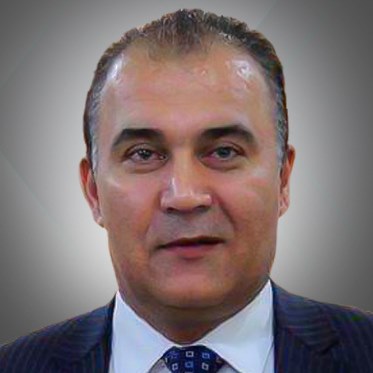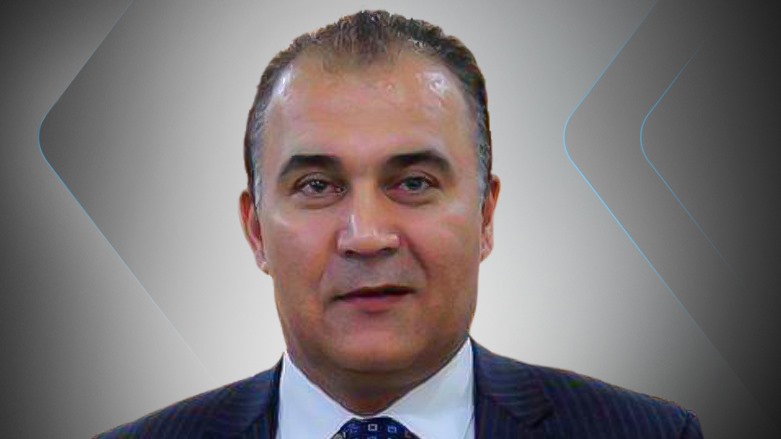
Awat Mustafa
Editor
Nobel Prize-winning playwright late Harold Pinter made Londoners cry for Kurds again
"The best way to show solidarity with Kurds was to hear the play on stage, to remind British audiences about the Kurds, and raise funds for the BCF’s humanitarian initiative for Syrian refugees."

The Barzani Charity Foundation (BCF) received an email from the Royal Court Theatre in Chelsea-London in early November asking if the foundation wished to partner with the Royal Court Theatre for a one-night event to raise money for Syrian Kurdish refugees by holding a play-reading for Mountain Language, a short play by the late Harold Pinter.
When the email was forwarded to me, I immediately replied and expressed our willingness to be part of the event. I did some quick research about the play and realized it was a magnificent opportunity to learn more about both the Royal Court Theatre and Pinter’s strong bond with the Kurds, as well as the director of the show, Douglas Hodge, and the well-known British actors in the play.
Who is Harold Pinter and what is Mountain Language?
Harold Pinter (1930-2008, CH CBE) was a British playwright, screenwriter, director, and actor. A Nobel Prize winner, Pinter was one of the most influential modern British dramatists with a writing career that spanned over 50 years. His best-known plays include The Birthday Party (1957), The Homecoming (1964), and Betrayal (1978), each of which he adapted for the screen. His screenplay adaptations include The Servant (1963), The Go-Between (1971), The French Lieutenant’s Woman (1981), The Trial (1993), and Sleuth (2007). He also directed or acted in radio, stage, television, and film productions of his and others’ works.
Pinter’s work has been described as dramatizing the interplay and conflict of the opposing poles of involvement and disengagement. Mountain Language (1988) is about the Turkish suppression of the Kurdish language. Pinter’s longer political satire Party Time (1991) premiered at the Almeida Theatre in London, in a double-bill with Mountain Language. Pinter adapted it as a screenplay for television in 1992, directing that production, first broadcast in the United Kingdom on Channel 4 on Nov. 17, 1992.
Ever since then, Mountain Language has re-emerged many times, played by well-known actors in the UK and around the world. The latest reading of the play was directed at the Royal Court Theatre in Chelsea-London by Douglas Hodge, a well-known British actor, director, and musician who trained for the stage at the Royal Academy of Dramatic Art.
Hodge, who says he has a passion for humanity, contemplated the continued suffering of the Kurds, especially following Turkey’s latest offensive in northern Syria. Knowing that the play was inspired by the Kurdish people, Hodge decided the best way to show solidarity with Kurds was to hear the play on stage, to remind British audiences about the Kurds, and raise funds for the BCF’s humanitarian initiative for Syrian refugees.

I was asked to deliver a short statement about the BCF’s response to the humanitarian crisis in northern Syria. I was nervous because of my lack of experience with theatre, in general. I did not know what to expect from both the actors and the audience. I was uncertain how they would respond, but the Royal Court management, especially Executive Producer Lucy Davies, came to my rescue. She, along with her other colleagues, had excellent organizational skills, and along with Hodge, built my confidence to take the stage.
I decided to tell the audience how and why we do humanitarian work in our region, and how the work we do is inspired by the late Kurdish leader, Mustafa Barzani (1903-1979)—someone who dedicated his entire life to fighting prejudice and realizing the rights of ethno-religious minorities, including Christians, Jews, Yezidis, and Kakais.
Barzani began to demonstrate his leadership on the humanitarian front at 15 years old, when the Armenians were driven out from their homes in Turkey, and the Ottoman Army surrounded the Prince (Amir) of Armenia and his family. The Kurdish leader, along with a handful of men, crossed the border from his homeland in the Barzan region to Turkey, were he fought through the Turkish army and rescued the Amir and his family. They were handed over to the French army in Syria where they later traveled to the United States.
The audience’s response was incredible. I felt as though both Pinter and Barzani had heard me. Indeed, if they were present, they would have smiled at me. Nevertheless, their blessing did reach me and everyone in the theatre through Pinter’s widow, Lady Antonia Fraser, who made a great effort to attend. She was very happy and proud that Pinter’s work still manages to tell the suffering of the Kurdish people.
Mountain Language itself is a very strong story, but this time it had a stronger impact thanks to Hodge who directed the show and the talented actors: Bill Nighy, Abraham Popoola, Colin Salmon, Toby Stephens, Penelope Wilton, Sion Daniel Young, and young Kurdish actor Shaniaz Hama Ali who played their roles very well.
The event certainly gave Kurds an opportunity to learn more about Harold Pinter and his artistic weapon, and inspired Kurds to fight for their self-determination.
There are many reasons Kurds should celebrate this event, but for the BCF’s founders, staff, and volunteers, this event is special and meaningful because it serves as a great recognition and perfectly reflects the BCF’s services to humanity, not only within the Kurdistan Region but the wider region and beyond.
Awat Mustafa is a board member for the Barzani Charity Foundation and researcher. He holds a Master of Science in International Development from Newcastle/Northumbria University in the United Kingdom.
The views expressed in this article are those of the author and do not necessarily reflect the position of Kurdistan 24.
Editing by Karzan Sulaivany